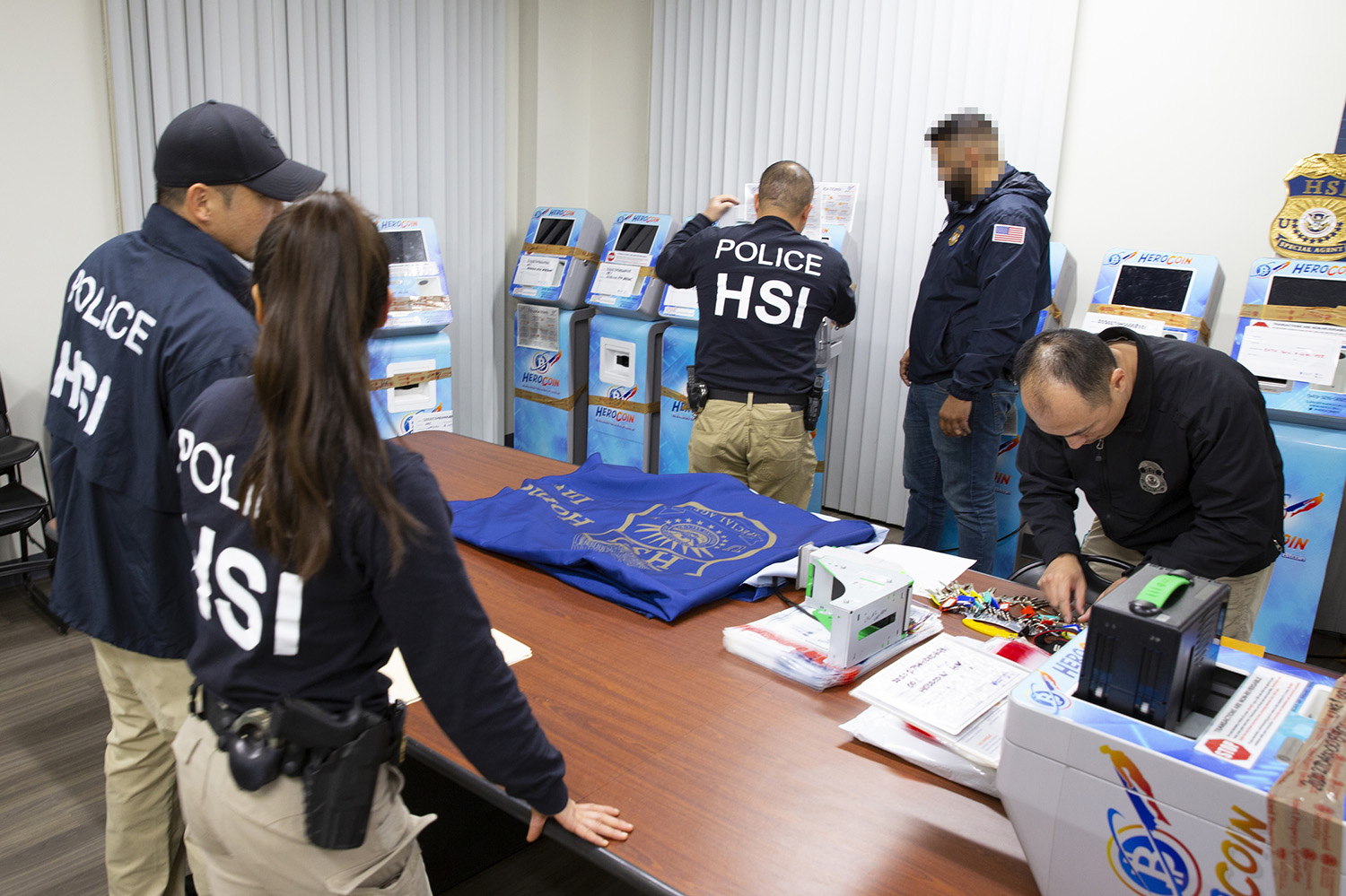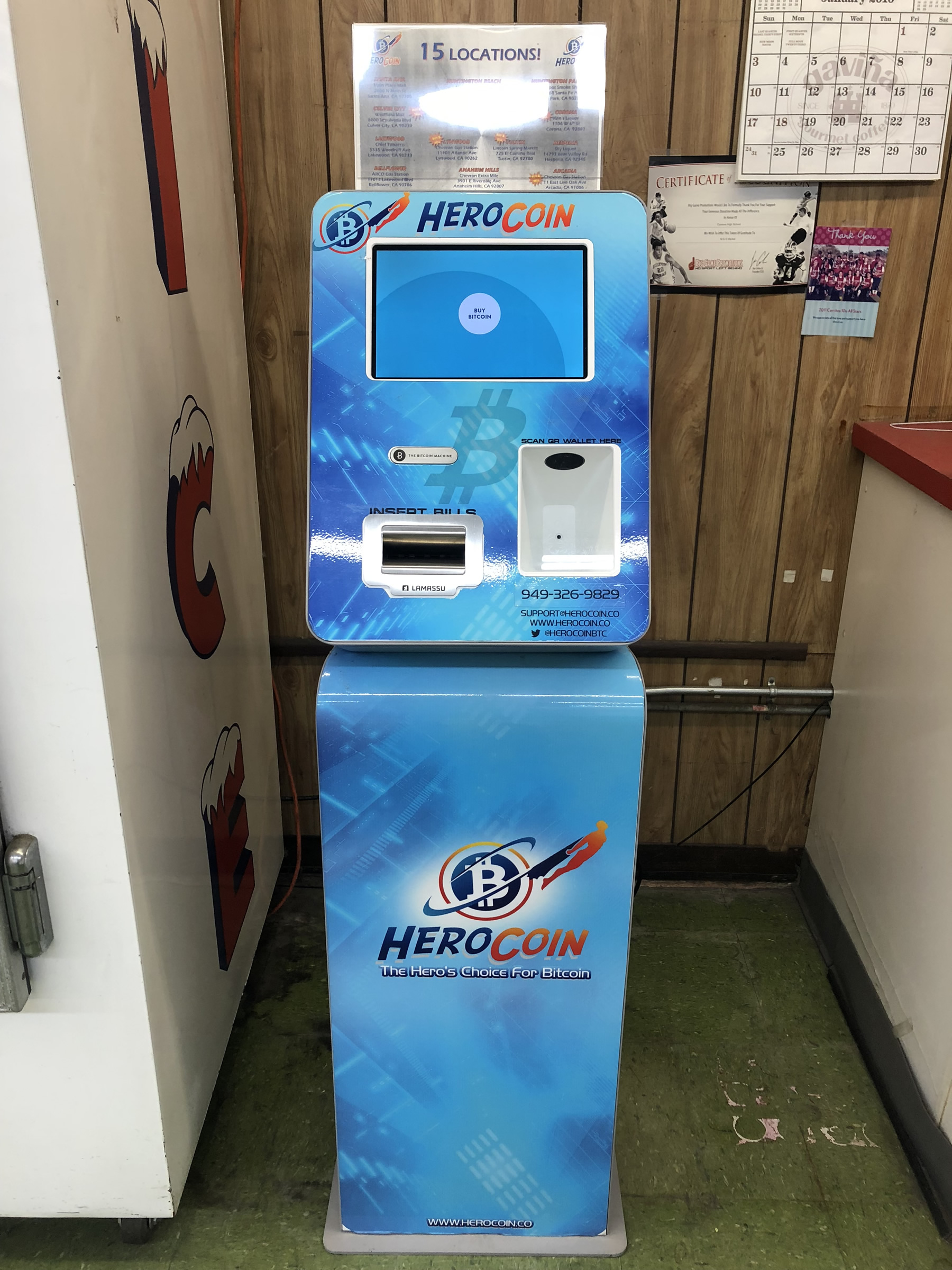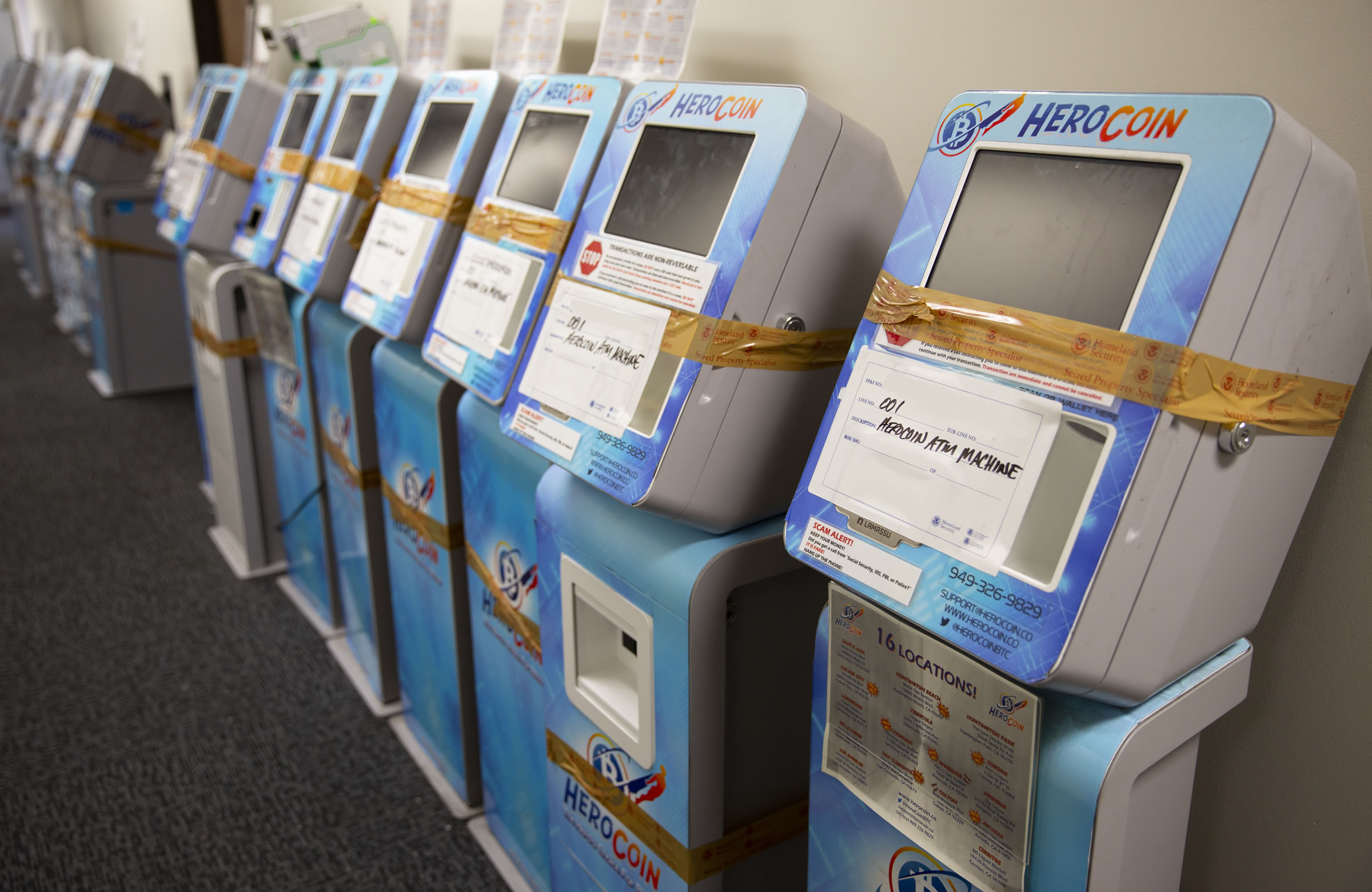Archived Content
In an effort to keep ICE.gov current, the archive contains content from a previous administration or is otherwise outdated. This information is archived and not reflective of current practice.
HSI probe results in 2-year prison sentence for Orange County man who operated illegal ATM network that laundered Bitcoin and cash for criminals
SANTA ANA, Calif. — An Orange County man was sentenced Friday to 24 months in federal prison for operating an illegal virtual-currency money services business that exchanged up to $25 million – some of it on behalf of criminals – through in-person transactions and a network of Bitcoin ATM-type kiosks.
Kais Mohammad, a.k.a. “Superman29,” 37, of Yorba Linda, was sentenced in U.S. District Court, the result of an investigation by Homeland Security Investigations (HSI) Los Angeles, IRS Criminal Investigation and the Los Angeles County Sheriff’s Department.
Mohammad pleaded guilty in September 2020 to a three-count criminal information charging him with operating an unlicensed money transmitting business, money laundering, and failing to maintain an effective anti-money laundering program. Mohammad has agreed to forfeit to the government 17 Bitcoin ATMs, $22,820 in cash, 18.4 Bitcoin and 222.5 Ethereum cryptocurrency.
From December 2014 to November 2019, Mohammad owned and operated Herocoin, an illegal virtual-currency money services business. As part of his business, Mohammad offered Bitcoin-cash exchange services, charging commissions of up to 25 percent – significantly above the prevailing market rate.
Using the moniker “Superman29,” Mohammad advertised his business online to buy and sell Bitcoin in transactions up to $25,000. In a typical transaction, he met clients at a public location in Southern California and exchanged currency for them. Mohammad generally did not inquire as to the source of the clients’ funds and, on certain occasions, he knew the funds were the proceeds of criminal activity. Mohammad knew at least one Herocoin client was engaged in illegal activity on the dark web.
Mohammad processed cryptocurrency deposited into the machines, supplied the machines with cash that customers would withdraw, and maintained the server software that operated the machines. Mohammad was able to monitor transactions on the machines and identify each transaction that occurred on them.
During the time of Herocoin’s operation, Mohammad, a former bank employee who trained others on compliance matters, intentionally failed to register his company with the U.S. Treasury Department’s Financial Crimes Enforcement Network (FinCEN). Mohammad was aware that he was required to – but chose not to – develop and maintain an effective anti-money laundering program, file currency transaction reports for exchanges of currency in excess of $10,000, conduct due diligence on customers, and file suspicious activity reports for transactions over $2,000 involving customers he knew, or had reason to suspect, were involved in criminal activity.
With respect to his Bitcoin ATM network, Mohammad’s machines allowed customers to conduct financial transactions without requiring any identification and permitted customers to conduct multiple, consecutive transactions of up to $3,000 each without ever reporting suspicious activity to regulators or law enforcement.
After FinCEN contacted Mohammad in July 2018 about his need to register his company, Mohammad did so, but he continued to fail to comply fully with federal law concerning money laundering, conducting due diligence and reporting suspicious customers.
“Rather than use his knowledge to create a robust compliance program, (Mohammad) avoided one altogether and profited by making his business an efficient, unchecked, and nearly anonymous conduit for money laundering and other crimes,” prosecutors wrote in their sentencing memorandum.
From February 2019 to August 2019, Mohammad also conducted multiple in-person transactions with undercover agents who represented they worked at a “karaoke bar” that employed women from Korea who entertained men in various ways, including engaging in sexual activity. On August 28, 2019, Mohammad met with an undercover law enforcement agent and exchanged $16,000 in cash, which the agent represented were the proceeds from illegal activity, for 1.58592 Bitcoin. Mohammad never filed a currency transaction report or suspicious activity report for these transactions.
In total, Mohammad exchanged between $15 million and $25 million from in-person exchanges and transactions occurring at his Bitcoin kiosks.
This investigation was conducted with the support of the Organized Crime Drug Enforcement Task Force (OCDETF) and prosecuted by the U.S. Attorney for the Central District of California’s International Narcotics, Money Laundering and Racketeering Section.
HSI is a directorate of U.S. Immigration and Customs Enforcement (ICE) and the principal investigative arm of the U.S. Department of Homeland Security, responsible for investigating transnational crime and threats, specifically those criminal organizations that exploit the global infrastructure through which international trade, travel and finance move. HSI’s workforce of over 10,400 employees consists of more than 7,100 Special Agents assigned to 220 cities throughout the United States, and 80 overseas locations in 53 countries. HSI’s international presence represents DHS’s largest investigative law enforcement presence abroad and one of the largest international footprints in U.S. law enforcement.




